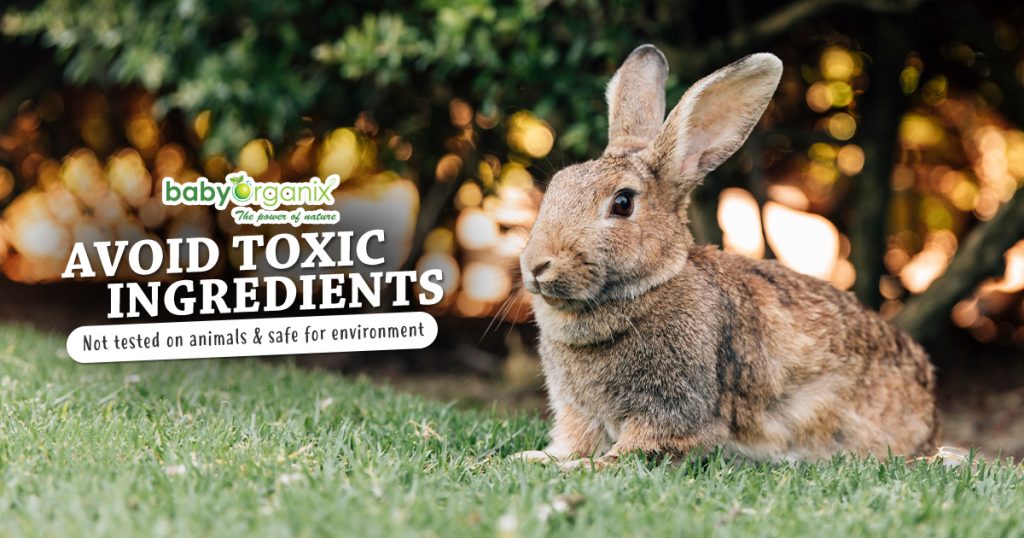Ingredients to Avoid
BabyOrganix’s mission is to provide quality products that are not tested on animals, free from toxic chemicals and are completely safe for the environment. As a compassionate business, we are not only cruelty-free but they’re also as sustainable as possible. The packaging for our products is made entirely from recyclable materials.
Ingredient |
What is it? |
Why is it harmful? |
|
Phthalates |
Phthalates are a family of chemical compounds primarily used to make polyvinyl chloride (PVC) or vinyl flexible and pliant. |
It used to soften PVC plastic and as solvents in cosmetics and other consumer products, can damage the liver, kidneys, lungs, and reproductive system — particularly the developing testes — according to animal studies. |
|
Fragrance |
It’s also known as perfume. It used to make the products smell better. |
It can throw our bodies into a number of reactive behaviors and trigger migraines, allergy symptoms, asthma, chronic lung disease and other health conditions. |
|
Sodium Lauryl Sulfate/Sodium Laureth Sulfate (SLS) |
SLS is an emulsifier and foaming agent commonly used in cosmetic products and industrial cleaners. SLS is present in most body washes, soaps, shampoos, toothpastes and laundry detergent. |
Soaps and shampoos containing SLS can lead to direct damage to the hair follicle, skin damage, permanent eye damage in children and even liver toxicity. |
|
Formaldehyde |
Formaldehyde is a colorless, strong-smelling gas used in making building materials and many household products. |
It contains carcinogen. Chronic exposure to formaldehyde may also cause general damage to the central nervous system, such as increased prevalence of headaches, depression, mood changes, insomnia, irritability, attention deficit, and impairment of dexterity, memory, and equilibrium |
|
Triclosan |
Triclosan is a synthetic chemical with antimicrobial properties which destroy or inhibit the growth of microorganisms such as bacteria or fungi. |
It is a known endocrine disruptor and a suspected carcinogen. There is good reason to believe that the over use of products with triclosan has contributed to bacterial resistance in the same way we are cautioned against the use of antibiotics. |
|
Parabens |
Parabens are chemicals that are often used as preservatives to give products a longer shelf life. They’re added to food or cosmetics to prevent the growth of mold and other harmful bacteria. |
Parabens can act like the hormone estrogen in the body and disrupt the normal function of hormone systems affecting male and female reproductive system functioning, reproductive development, fertility and birth outcomes. |
|
Mineral Oil |
Mineral oil is a highly purified, lightweight ingredient used in lotions, creams and other cosmetic products. |
Applying it to your skin repeatedly can cause various negative hormonal effects, including ovarian dysfunction, endometriosis, miscarriages, and damage to the immune system |
|
Polyethylene glycols (PEGs) |
It is used as penetration enhancers, especially in topical dermatological preparations. |
PEG compounds often contain small amounts of ethylene oxide and other heavy metals. The toxicity increases the incidence of uterine and breast cancers and of leukemia and brain cancer. |
|
Petrolatum |
It is a semisolid mixture derived from refining crude oil. |
Iit can be contaminated with toxic chemicals called polycyclic aromatic hydrocarbons (PAHs) which is carcinogenic. |
|
Oxybenzone & Octinoxate |
It is one of the most common chemical filters found in commercial chemical sunscreens. |
It has been linked to hormone disruption and has the potential to damage cells that may lead to skin cancer. |
|
Aluminum & metals |
Heavy metals used in cosmetics include lead, arsenic, mercury, aluminum, zinc, chromium and iron. |
These metals can cause organ damage, hormonal imbalances, organ toxicity and are classified as possible or known human carcinogens |
|
Butylated Hydroxytoluene (BHT) / Butylated Hydroxyanisole (BHA) |
They are used as preservatives in a variety of personal care products. Both of these chemicals are also used as preservatives in foods. |
These chemicals are linked to several health concerns including endocrine disruption and organ-system toxicity. |
